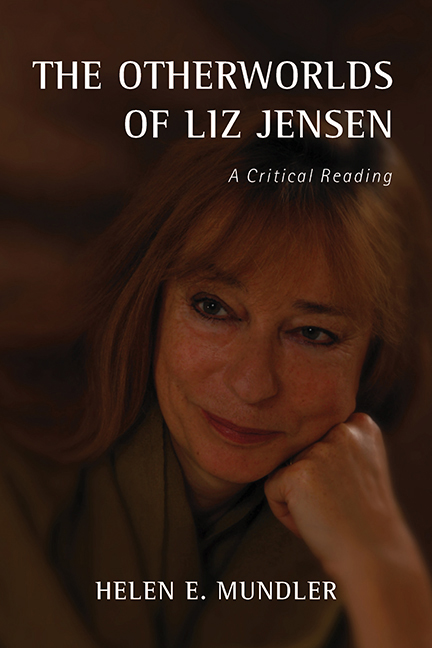Book contents
- Frontmatter
- Dedication
- Contents
- Acknowledgements
- List of Abbreviations
- Introduction
- 1 Egg Dancing: Paving the Way for Otherworlds in Time and Space
- 2 Ark Baby and the Return to the Nineteenth Century
- 3 Island Life: The Pure “Ustopia” of The Paper Eater
- 4 Liz Jensen's Murder Mysteries
- 5 From Family Romance to the Detective Novel
- 6 New Rules, New Otherworlds: Jensen's “Third Wave”
- 7 Ecofiction, Rapture Fiction
- 8 The Uninvited: The Most Radically “Other” World to Date
- Conclusion
- Notes
- Bibliography
- Index
- Frontmatter
- Dedication
- Contents
- Acknowledgements
- List of Abbreviations
- Introduction
- 1 Egg Dancing: Paving the Way for Otherworlds in Time and Space
- 2 Ark Baby and the Return to the Nineteenth Century
- 3 Island Life: The Pure “Ustopia” of The Paper Eater
- 4 Liz Jensen's Murder Mysteries
- 5 From Family Romance to the Detective Novel
- 6 New Rules, New Otherworlds: Jensen's “Third Wave”
- 7 Ecofiction, Rapture Fiction
- 8 The Uninvited: The Most Radically “Other” World to Date
- Conclusion
- Notes
- Bibliography
- Index
Summary
AS THIS CRITICAL STUDY HAS SHOWN, Jensen's oeuvre is very diverse, spanning social comedy, full blown utopias, family tragedy, and apocalyptic eco-thrillers. The voices of both the very young and the very old are ventriloquized, and both past and future are explored. Jensen's novels range through very dense networks of intertexts, explicit and implicit, from the Bible, through the Victorian novelists, to contemporary science-fiction texts. She demonstrates not only exceptional range but also astonishing creativity. Not only are her protagonists complex and engaging, but her cast of secondary characters is almost Dickensian in its variety, with the Victorian taxidermist (Dr. Scrapie), the Irish evacuee (Mrs. O'Malley), the corrupt psychiatrist (Dr. Stern), and the evil genius (Greg), being particularly memorable. Disparate as it is, Jensen's work can be fruitfully read as a whole, and this book has proposed ways of approaching Jensen's novels synthetically, in terms of form and textuality, as well as theme. By adopting a generally chronological, although transversal, approach, I have sought to be complete without being reductive.
This book has demonstrated that while, as a writer straddling the divide between the popular and the literary, Jensen always engages with the issues of the day, from the ethical problems posed by designer babies to ecological disaster, from evangelical revival through the end of capitalism to the plight of the elderly in residential homes, her work also engages with the canon, and that maverick as she is, she writes within a number of traditions. In many ways, her writings are rewritings, with their persistent reference to Bible stories, to myths and fairy tales, and to the nineteenthcentury novelistic tradition and Romantic poetry, and while her work often has a marked futuristic bent, her references are rooted in the great works of the past. Consciousness of the postmodern creative process is fully integrated into her works, with their various degrees of textual irony, placing most of her output firmly on the side of the literary or erudite. In addition to this, meta-commentary on language itself and on the processes of creation is also part of her very recognizable style.
- Type
- Chapter
- Information
- The Otherworlds of Liz JensenA Critical Reading, pp. 192 - 196Publisher: Boydell & BrewerPrint publication year: 2016

